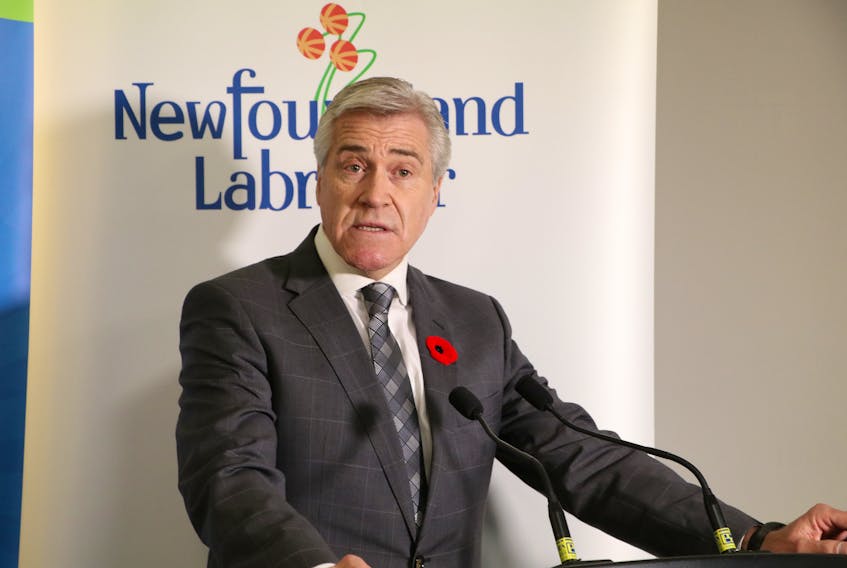Premier Dwight Ball said Monday he doesn’t anticipate any dispute with the federal government over a “made-in-Newfoundland and Labrador” carbon pricing plan he expects his government to unveil next spring.
The federal government has said a federal option will apply to provinces without a provincial carbon pollution pricing system in place by 2018.
Provinces can choose which type of system to implement: a direct-pricing system or a cap-and-trade system.
Under a direct-pricing system, the carbon price would be mandated to start at a minimum of $10 per tonne in 2018 and rise by $10 per year to $50 per tonne in 2022.
Under a cap-and-trade system, provinces would need to have a 2030 emissions reduction target equal to or greater than Canada’s 30 per cent reduction target.
Ball would not say which system his government is looking at.
On Friday, the Manitoba government released its “Made-in-Manitoba Climate and Green Plan” which falls short of what the federal government has mandated — a move that has drawn the ire of Prime Minister Justin Trudeau.
The Manitoba plan calls for a starting price of $25 per tonne in 2018, and that price would remain stable through to 2022.
“The plan sets out a made-in-Manitoba approach to carbon pricing with a low and level price of $25 per tonne beginning during 2018,” Manitoba Sustainable Development Minister Rochelle Squires stated in a news release.
“This is half the amount mandated by the federal government and it will give Manitoba the second-lowest carbon price in Canada by 2022.”
The Canadian Press reported that Trudeau said on Friday his government will impose the federal government’s version in Manitoba if need be, something Manitoba Premier Brian Pallister said his government will fight.
The implementation of a carbon tax in Newfoundland and Labrador, however, is expected to go more smoothly, according to Ball.
“We are working quite closely with the federal government today and over the next few months,” Ball said Monday. “There is no reason for us to believe the federal government would not accept the plan that we have put in place. It’s taking into consideration what is happening in our offshore, but it gives us the discretion to use the money that comes from carbon pricing to actually reinvest in Newfoundland and Labrador.”









